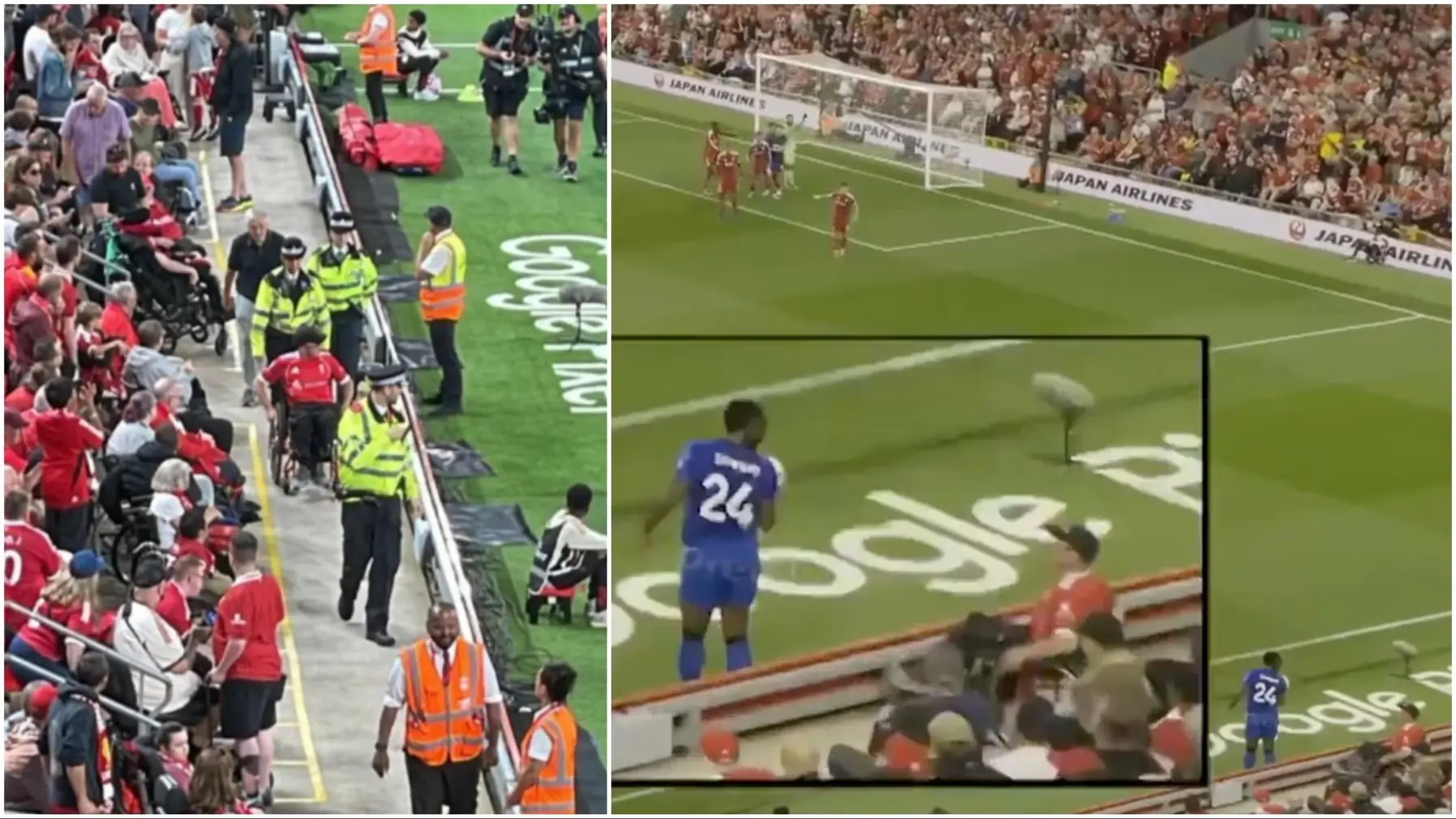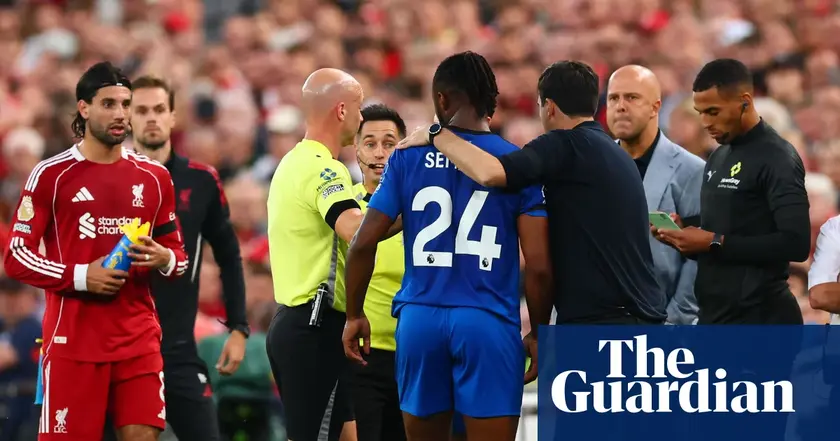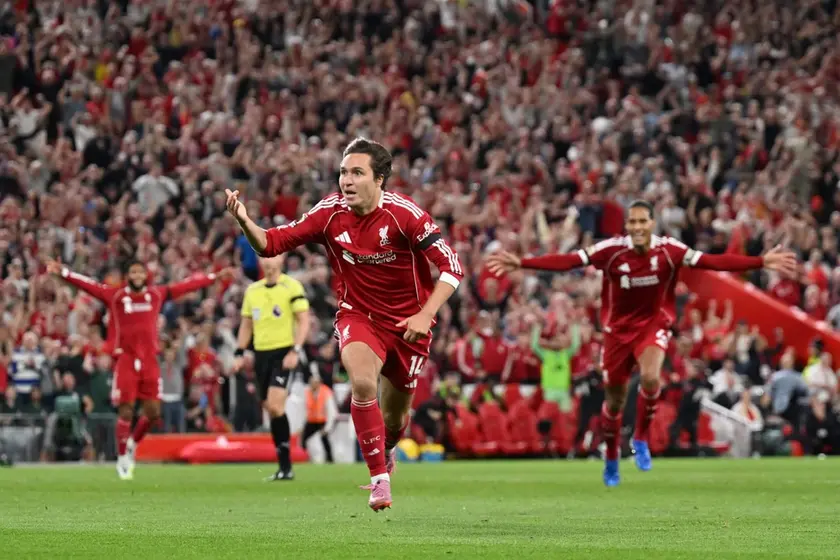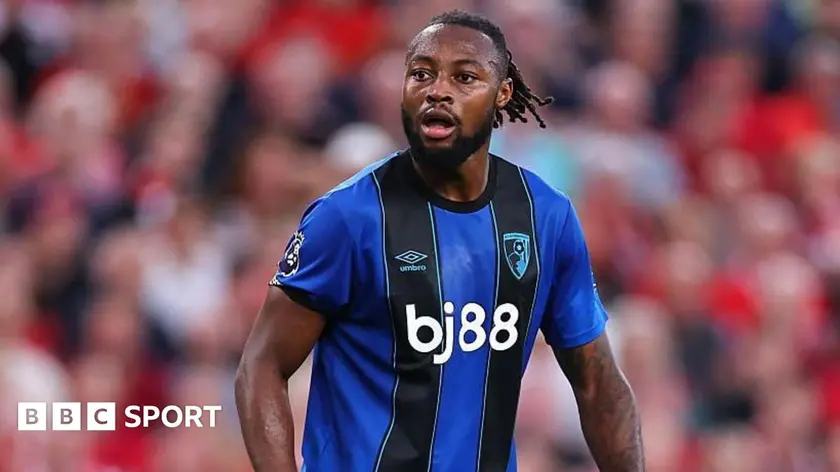T4K3.news
Semenyo abuse case leads to bail and stadium ban
A 47-year-old man was bailed on suspicion of racially abusing Semenyo and is banned from all regulated matches and within one mile of stadiums.

A man bailed after being arrested for racially abusing Antoine Semenyo is banned from all regulated matches and from stadiums within a mile.
Semenyo Racist Abuse Case Sees Suspect Bailed and Stadium Ban
A 47-year-old man from Liverpool was arrested on suspicion of racially abusing Bournemouth player Antoine Semenyo during Friday night’s match at Anfield. He was released on bail and given conditions that prohibit him from attending any regulated football match in the UK and from entering within one mile of a designated stadium. The incident paused play while the referee consulted managers, an anti discrimination message was broadcast, and police visited the referees’ room at half time. Semenyo later scored twice as Bournemouth came back from a two goal deficit, but Liverpool still won 4-2.
The Premier League said its on-field anti discrimination protocol was followed and the incident will be fully investigated. Merseyside Police said the inquiry is ongoing and is being coordinated with Liverpool FC. Semenyo posted on social media thanking fans for the support, saying the moment underscored the unity of the football family.
Key Takeaways
"Last night at Anfield will stay with me forever - not because of one person's words, but because of how the entire football family stood together."
Semenyo reflecting on the support after the incident
"The messages of support I received were overwhelming."
Semenyo describing public support
"The Premier League says its on-field anti discrimination protocol had been followed."
League statement on protocol adherence
"This is a strong reminder that football has a duty to protect players from hate."
Editorial interpretation of the incident's significance
The case highlights how racism remains a risk in football venues and online spaces. Quick enforcement through bail and stadium restrictions sends a clear message that hate has no place in the sport. Yet the broader challenge lies in preventing abuse before it happens, and in protecting players from hurt that travels beyond match day. Clubs, leagues, and platforms must work together to strengthen reporting channels and support for players while keeping fans engaged in positive ways.
There is also a political and cultural dimension. Decisions by police and leagues are scrutinized for consistency and transparency, and some supporters may see restrictions as heavy handed. The real test is turning words into ongoing cultural change that keeps players safe and makes stadiums welcoming for everyone.
Highlights
- Football belongs to its fans not to hate
- Hate has no seat in the stands
- Support for Semenyo shows the sport is stronger when it stands together
- This case tests how fast justice moves in a global game
Racial abuse case triggers safety and backlash concerns
The incident underscores ongoing online and in-stadium abuse and the risk of public backlash against players and communities. It also raises questions about enforcement consistency and the speed of investigations across clubs and platforms.
The fight against hate in football is far from over.
Enjoyed this? Let your friends know!
Related News

Racial abuse case leads to bail

Liverpool man banned from UK stadiums after racist abuse report

Liverpool man bailed after racist abuse report

Identity of Semenyo Abuser Revealed at Anfield

Fan banned from UK stadiums after Semenyo abuse

Racist abuse targets Semenyo after Liverpool clash

Racial abuse incident at Premier League match

Chiesa seals late win for Liverpool
